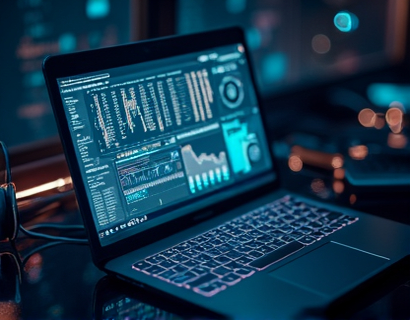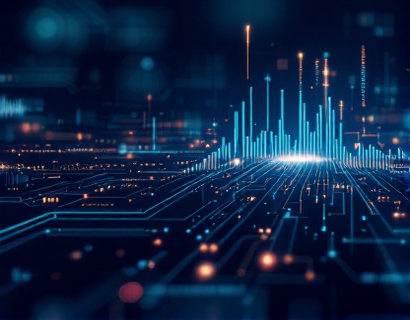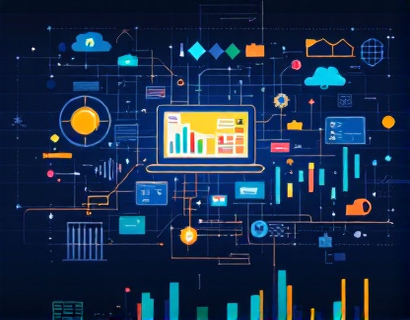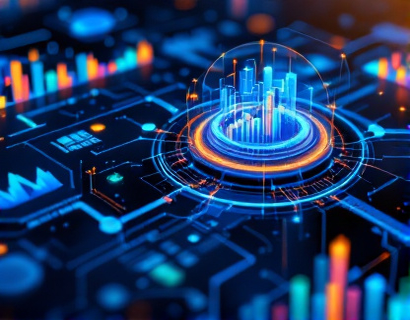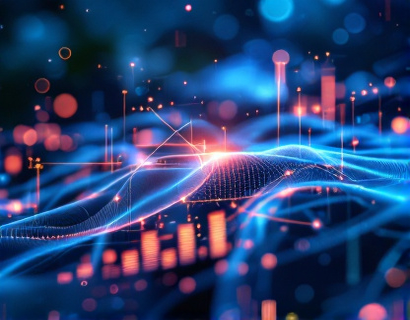Unlocking Digital Efficiency: Leveraging AI and Crypto for Enhanced Productivity in the Next Generation
The digital age has ushered in a transformative era where technology plays a pivotal role in shaping how we work, interact, and innovate. At the forefront of this revolution are two groundbreaking technologies: Artificial Intelligence (AI) and Cryptocurrency. These technologies, when merged, offer unprecedented opportunities to unlock digital efficiency, streamline tasks, and redefine productivity. This article delves into the synergy between AI and cryptocurrency, exploring advanced solutions that empower individuals and businesses to achieve greater productivity in the next generation of digital innovation.
The integration of AI and cryptocurrency is not merely a technological curiosity but a strategic convergence that addresses some of the most pressing challenges in the digital landscape. AI, with its ability to process vast amounts of data, learn from patterns, and make intelligent decisions, has the potential to revolutionize various industries. Cryptocurrency, on the other hand, provides a decentralized, secure, and transparent means of transaction, eliminating the need for intermediaries and reducing costs. When combined, these technologies can create a powerful ecosystem that enhances productivity and fosters innovation.
AI-Driven Automation: Streamlining Repetitive Tasks
One of the most immediate benefits of integrating AI into digital workflows is the automation of repetitive and time-consuming tasks. AI algorithms can analyze work patterns, identify inefficiencies, and automate routine processes, freeing up human resources for more strategic and creative work. For instance, in the realm of customer service, AI-powered chatbots can handle a significant volume of inquiries, providing instant responses and resolving common issues without human intervention. This not only improves response times but also reduces the workload on human agents, allowing them to focus on more complex and value-added tasks.
In the business world, AI can automate financial reporting, data analysis, and even project management. Tools like AI-driven accounting software can process transactions, generate reports, and detect anomalies with high accuracy and speed. This level of automation not only enhances efficiency but also reduces the risk of human error, ensuring that businesses operate with greater precision and reliability.
Cryptocurrency: A Secure and Decentralized Solution
Cryptocurrency plays a crucial role in enhancing digital efficiency by providing a secure and decentralized means of transaction. Traditional financial systems often involve multiple intermediaries, such as banks and payment processors, which can slow down transactions and increase costs. Cryptocurrency eliminates these intermediaries, enabling peer-to-peer transactions that are faster, cheaper, and more secure. The use of blockchain technology, which underpins most cryptocurrencies, ensures transparency and immutability, making it an ideal solution for transactions that require a high level of trust and security.
For businesses, adopting cryptocurrency can streamline international payments, reduce transaction fees, and minimize the risk of fraud. Smart contracts, self-executing contracts with the terms directly written into code, can automate and enforce contractual obligations, further enhancing efficiency and reducing the need for legal oversight. This not only speeds up business processes but also builds trust among parties by ensuring that agreements are honored as programmed.
Enhanced Data Analytics: Insights for Better Decision-Making
The combination of AI and cryptocurrency also revolutionizes data analytics, providing deeper insights and more accurate predictions. AI algorithms can process and analyze vast datasets, identifying patterns and trends that would be impossible for humans to detect manually. This capability is particularly valuable in the context of cryptocurrency, where market data is vast and constantly evolving. AI-driven analytics can help traders and investors make informed decisions by providing real-time insights into market dynamics, sentiment analysis, and predictive modeling.
For businesses, access to advanced data analytics means better decision-making and strategic planning. By leveraging AI to analyze customer behavior, market trends, and operational data, companies can gain a competitive edge. For example, retail businesses can use AI to predict demand, optimize inventory, and personalize marketing campaigns, leading to higher sales and customer satisfaction.
Decentralized Applications: Empowering Users
Decentralized applications (dApps) represent another exciting frontier where AI and cryptocurrency intersect. dApps are applications that run on a blockchain network, leveraging the decentralized nature of cryptocurrency to provide users with greater control and autonomy. Unlike traditional applications that rely on centralized servers, dApps are resistant to censorship and downtime, ensuring continuous availability and reliability.
In the context of productivity, dApps can offer a range of tools and services that enhance collaboration, content creation, and resource management. For instance, decentralized project management platforms can enable teams to collaborate seamlessly, with transparent task assignments, real-time updates, and secure file sharing. AI can further enhance these platforms by providing intelligent recommendations, automating routine tasks, and ensuring that projects stay on track.
Tokenization of Assets: Unlocking New Opportunities
Tokenization, the process of converting assets into digital tokens on a blockchain, is another innovative application of cryptocurrency that can boost digital efficiency. By tokenizing assets such as real estate, art, or intellectual property, businesses and individuals can fractionalize ownership, making these assets more accessible and liquid. This not only democratizes investment opportunities but also enhances liquidity and transparency.
For productivity purposes, tokenization can streamline asset management and transactions. For example, in the real estate sector, tokenized properties can simplify the buying and selling process, reduce transaction costs, and provide real-time updates on property status and ownership. AI can complement this by analyzing market data, predicting property values, and optimizing investment strategies, further enhancing the efficiency of asset management.
Security and Privacy: Building Trust in Digital Transactions
Security and privacy are paramount in the digital age, and the combination of AI and cryptocurrency offers robust solutions to address these concerns. AI can enhance cybersecurity by detecting and mitigating threats in real-time, analyzing patterns to identify potential vulnerabilities, and automating response mechanisms. This proactive approach to security ensures that digital transactions remain safe and trustworthy.
Cryptocurrency, with its inherent security features such as encryption and decentralization, provides a secure medium for transactions. The use of private keys and public addresses ensures that only authorized parties can access funds, reducing the risk of fraud and unauthorized access. Additionally, zero-knowledge proofs and other privacy-enhancing technologies can be integrated to protect user data while maintaining transparency in transactions.
Future Prospects: The Next Generation of Digital Solutions
As AI and cryptocurrency continue to evolve, the potential for innovation in digital efficiency is vast. The next generation of digital solutions will likely see even more sophisticated integrations, such as AI-powered blockchain networks that optimize transaction processing, AI-driven decentralized finance (DeFi) platforms that offer advanced financial services, and AI-enhanced virtual assistants that integrate seamlessly with blockchain-based applications.
The convergence of AI and cryptocurrency is not just a technological trend but a fundamental shift in how we approach digital productivity. By harnessing the strengths of both technologies, we can create a more efficient, secure, and user-centric digital ecosystem. This ecosystem will empower individuals and businesses to achieve new levels of productivity, innovation, and success in the digital age.
In conclusion, the integration of AI and cryptocurrency represents a powerful synergy that is reshaping the digital landscape. By automating repetitive tasks, providing secure and decentralized transactions, enhancing data analytics, enabling decentralized applications, tokenizing assets, and ensuring robust security and privacy, these technologies are paving the way for a more efficient and productive future. As we move forward, embracing this convergence will be essential for staying competitive and thriving in the next generation of digital innovation.







